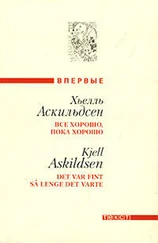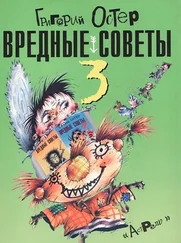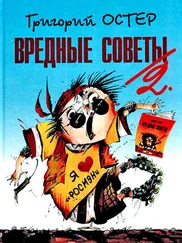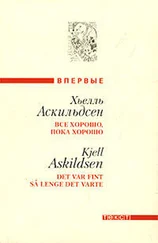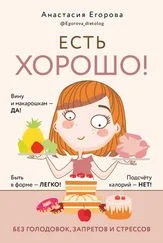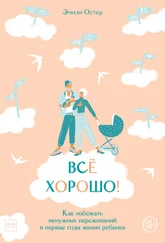Эмили Остер - Всё хорошо!
Здесь есть возможность читать онлайн «Эмили Остер - Всё хорошо!» — ознакомительный отрывок электронной книги совершенно бесплатно, а после прочтения отрывка купить полную версию. В некоторых случаях можно слушать аудио, скачать через торрент в формате fb2 и присутствует краткое содержание. Год выпуска: 2020, ISBN: 2020, Издательство: Манн, Иванов и Фербер, Жанр: sci_pedagogy, на русском языке. Описание произведения, (предисловие) а так же отзывы посетителей доступны на портале библиотеки ЛибКат.
- Название:Всё хорошо!
- Автор:
- Издательство:Манн, Иванов и Фербер
- Жанр:
- Год:2020
- ISBN:9785001690887
- Рейтинг книги:5 / 5. Голосов: 1
-
Избранное:Добавить в избранное
- Отзывы:
-
Ваша оценка:
- 100
- 1
- 2
- 3
- 4
- 5
Всё хорошо!: краткое содержание, описание и аннотация
Предлагаем к чтению аннотацию, описание, краткое содержание или предисловие (зависит от того, что написал сам автор книги «Всё хорошо!»). Если вы не нашли необходимую информацию о книге — напишите в комментариях, мы постараемся отыскать её.
Всё хорошо! — читать онлайн ознакомительный отрывок
Ниже представлен текст книги, разбитый по страницам. Система сохранения места последней прочитанной страницы, позволяет с удобством читать онлайн бесплатно книгу «Всё хорошо!», без необходимости каждый раз заново искать на чём Вы остановились. Поставьте закладку, и сможете в любой момент перейти на страницу, на которой закончили чтение.
Интервал:
Закладка:
12.Gentzkow M., Shapiro J. M. Preschool television viewing and adolescent test scores : Historical evidence from the Coleman Study // The Quarterly Journal of Economics. 2008. № 123 (1). Р. 279–323.
13.Handheld screen time linked with speech delays in young children. Abstract presented at American Academy of Pediatrics, PAS meeting, 2017.
Глава 15. Когда ребенок заговорит: речевое развитие
1.Nelson K. Narratives from the Crib. Cambridge, MA : Harvard University Press, 2006.
2.The MacArthur-Bates Communicative Development Inventory : Words and sentences. URL: https://www.region10.org/r10website/assets/File/Mac%20WS_English.pdf.
3.URL: http://wordbank.stanford.edu/analyses?name=vocab_norms.
4.Rescorla L., Bascome A., Lampard J., Feeny N. Conversational patterns and later talkers at age three // Applied Psycholinguistics. 2001. № 22. Р. 235–251.
5.Rescorla L. Age 17 language and reading outcomes in late-talking toddlers : Support for a dimensional perspective on language delay // Journal of Speech, Language, and Hearing Research. 2009. № 52 (1). Р. 16–30; Rescorla L. Language and reading outcomes to age 9 in late-talking toddlers // Journal of Speech, Language, and Hearing Research. 2002. № 45 (2). Р. 360–371; Rescorla L., Roberts J., Dahlsgaard K. Late talkers at 2 : Outcome at age 3 // Journal of Speech, Language, and Hearing Research. 1997. № 40 (3). Р. 556–566.
6.Hammer C. S., Morgan P., Farkas G., Hillemeier M., Bitetti D., Maczuga S. Late talkers : A population-based study of risk factors and school readiness consequences // Journal of Speech, Language, and Hearing Research. 2017. № 60 (3). Р. 607–626.
7.Lee J. Size matters : Early vocabulary as a predictor of language and literacy competence // Applied Psycholinguistics. 2011. № 32 (1). Р. 69–92.
8.Thal D. J. et al. Continuity of language abilities : An exploratory study of late and early talking toddlers // Developmental Neuropsychology. 1997. № 13 (3). Р. 239–273.
9.Crain-Thoreson C., Dale P. S. Do early talkers become early readers? Linguistic precocity, preschool language, and emergent literacy // Child Development. 1992. № 28 (3). Р. 421.
Глава 16. Приучение к горшку: наклейки и конфетки
1.Blum N. J., Taubman B., Nemeth N. Why is toilet training occurring at older ages? A study of factors associated with later training // The Journal of Pediatrics. 2004. № 145 (1). Р. 107–111.
2.Blum N. J. et al. Why is toilet training occurring at older ages?
3.Gilson D., Butler K. A Brief History of the Disposable Diaper // Mother Jones. Май/июнь 2008. URL: https://www.motherjones.com/environment/2008/04/brief-history-disposable-diaper.
4.Blum N. J., Taubman B., Nemeth N. Relationship between age at initiation of toilet training and duration of training : A prospective study // Pediatrics. 2003. № 111 (4). Р. 810–814.
5.Vermandel A., Van Kampen M., Van Gorp C., Wyndaele J. J. How to toilet train healthy children? A review of the literature // Neurourology and Urodynamics. 2008. № 27 (3). Р. 162–166.
6.Гловацки Д. Откажитесь от подгузников! Как приучить ребенка к горшку за 3 дня. — М. : Эксмо-Пресс, 2017.
7.Jensen L. 3-Day Potty Training. 2014.
8.Vermandel A. et al. How to toilet train healthy children?
9.Greer B. D., Neidert P. L., Dozier C. L. A component analysis of toilet-training procedures recommended for young children // Journal of Applied Behavior Analysis. 2016. № 49 (1). Р. 69–84.
10.Russell K. Among healthy children, what toilet-training strategy is most effective and prevents fewer adverse events (stool withholding and dysfunctional voiding)? : Part A : Evidence-based answer and summary // Paediatrics & Child Health. 2008. № 13 (3). Р. 201–202.
11.Flensborg-Madsen T., Mortensen E. L. Associations of early developmental milestones with adult intelligence // Child Development. 2018. № 89 (2). Р. 638–648.
12.Taubman B. Toilet training and toileting refusal for stool only : A prospective study // Pediatrics. 1997. № 99 (1). Р. 54–58.
13.Brooks R. C., Copen R. M., Cox D. J., Morris J., Borowitz S., Sutphen J. Review of the treatment literature for encopresis, functional constipation, and stool-toileting refusal // Annals of Behavioral Medicine. 2000. № 22 (3). Р. 260–267.
14.Taubman B., Blum N. J., Nemeth N. Stool toileting refusal : A prospective intervention targeting parental behavior // Archives of Pediatrics & Adolescent Medicine. 2003. № 157 (12). Р. 1193–1196.
15.Taubman B. Toilet training and toileting refusal for stool only.
16.Kliegman R., Nelson W. E. Nelson Textbook of Pediatrics. Philadelphia : W. B. Saunders Company, 2007.
17.Rugolotto S., Sun M., Boucke L., Calò D. G., Tatò L. Toilet training started during the first year of life : A report on elimination signals, stool toileting refusal and completion age // Minerva pediatrica. 2008. № 60 (1). Р. 27–35.
Глава 17. Дисциплина
1.Друкерман П. Французские родители не сдаются. — М. : Синдбад, 2014.
2.Фелан Т. Магия на 1-2-3. Как перестать срываться на ребенка и начать общаться спокойно и с удовольствием. — М. : Бомбора, 2019.
3.Уэбстер-Страттон К. Проблемные семьи — проблемные дети. Работа с родителями : процесс сотрудничества. Екатеринбург : Рама Паблишинг, 2010.
4.Sanders Matthew R., Mazzucchelli Trevor G. The power of positive parenting : transforming the loves of children, parents, and communities using the Triple P System. Oxford University Press, 2017.
5.Bradley S. J., Jadaa D. A., Brody J., et al. Brief psychoeducational parenting program : An evaluation and 1-year follow-up // Journal of the American Academy of Child and Adolescent Psychiatry. 2003. № 42 (10). Р. 1171–1178.
6.Porzig-Drummond R., Stevenson R. J., Stevenson C. The 1-2-3 Magic parenting program and its effect on child problem behaviors and dysfunctional parenting : A randomized controlled trial // Behaviour Research and Therapy. 2014. № 58. Р. 52–64.
7.McGilloway S., Bywater T., Ni Mhaille G., Furlong M., Leckey Y., Kelly P., et al. Proving the power of positive parenting : A randomised controlled trial to investigate the effectiveness of the Incredible Years BASIC Parent Training Programme in an Irish context (short-term outcomes). Archways Department of Psychology, NUI Maynooth, 2009.
8.Haroon M. Commentary on «Behavioural and cognitive-behavioural group-based parenting programmes for early-onset conduct problems in children aged 3 to 12 years» // Evidence-Based Child Health. 2013. № 8 (2). Р. 693–694.
9.MacKenzie M. J., Nicklas E., Brooks-Gunn J., Waldfogel J. Who spanks infants and toddlers? Evidence from the fragile families and child well-being study // Children and Youth Services Review. 2011. № 33 (8). Р. 1364–1373.
Читать дальшеИнтервал:
Закладка:
Похожие книги на «Всё хорошо!»
Представляем Вашему вниманию похожие книги на «Всё хорошо!» списком для выбора. Мы отобрали схожую по названию и смыслу литературу в надежде предоставить читателям больше вариантов отыскать новые, интересные, ещё непрочитанные произведения.
Обсуждение, отзывы о книге «Всё хорошо!» и просто собственные мнения читателей. Оставьте ваши комментарии, напишите, что Вы думаете о произведении, его смысле или главных героях. Укажите что конкретно понравилось, а что нет, и почему Вы так считаете.

